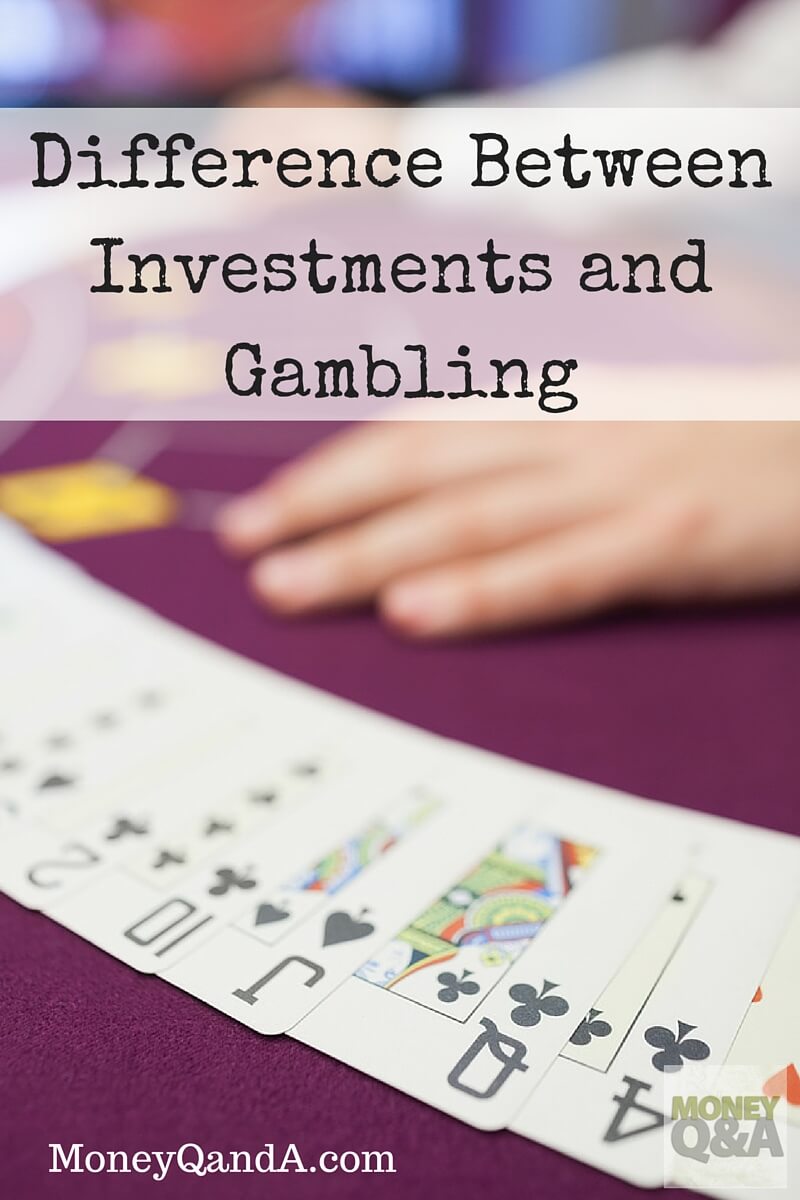Difference Between Day Trading And Gambling
I’ve realized that when I say I teach stock trading, people often assume that I’m talking about day trading. I have three types of trades that I teach: Swing Trading, Chart Trading, and Day Trading. What I mainly teach and where I make most of my money from is swing trading, and there are many important differences between these trading types. I’ve outlined the major ones here to clear up the confusion:
- Investing Vs Gambling
- How To Be A Day Trader
- Is Trading Gambling
- What Is Day Trading Stocks
- Day Traders Group
Risk
Explore their Concert Packages through the hotel which guarantee premium seats within the first 5 rows to headliner concerts at Sycuan Live & Up Close.  Harrah's Southern CaliforniaA playground of fun, Harrah's has a 2200-seat event center for live concerts and comedy shows with big name acts, along with Vegas-style performances like magic shows by modern-day wizards like Penn & Teller. During winter there's live jazz in the lounges while summers means Latin Thursdays, Dive After Dark pool parties with top DJS and Reggae Sundays by the pool. Viejas Casino and ResortThis luxury casino and resort is home to where skaters can glide under the stars from late October through the end of January and catch flicks like Frozen or Home Alone while on the ice.
Harrah's Southern CaliforniaA playground of fun, Harrah's has a 2200-seat event center for live concerts and comedy shows with big name acts, along with Vegas-style performances like magic shows by modern-day wizards like Penn & Teller. During winter there's live jazz in the lounges while summers means Latin Thursdays, Dive After Dark pool parties with top DJS and Reggae Sundays by the pool. Viejas Casino and ResortThis luxury casino and resort is home to where skaters can glide under the stars from late October through the end of January and catch flicks like Frozen or Home Alone while on the ice.
Day trading is a cousin to both investing and gambling, but it is not the same as either. Day trading involves quick reactions to the markets, not a long-term consideration of. Day trading or swing trading that is the question. If you are an active trader, day trading and swing trading will feel like second cousins. At the end of the day, both trading methodologies seek to make short-term profits based on price fluctuations in the market. Jan 28, 2014 As it turns out, day trading is not a financial dog-fight, but a prudent middle-ground between low risk investment and high-stakes gambling. Trading to Invest. Creating wealth in the market takes two forms. The first, trading on short-term movements to yield high profit (day trading), we’ll discuss in a moment. Day trading, for a newby, is like gambling, except there is a 90% chance you will lose. You may have a lucky streak in the beginning (10% of the time),but you will lose your shirt sooner or later. You can study and read all you want, but the market doesn't owe you anything.
Day trading can put you into debt — fast. Day traders generally use margin (borrowed money), so while this gives them more money and thus more potential to make profit, they can also lose much more. When you lose at day trading on margin, you lose big time. Stocks can move fast and the inexperienced can lose money fast. The big mistake is most new traders jump into day trading with little knowledge and that essentially equates to gambling.
Swing trading doesn’t rely so heavily on margin (you don’t have to use it if you don’t want to), so you don’t have to worry about winding up in debt. That doesn’t mean swing trading is risk free (far from it), but there are relatively less opportunities to lose money based on the risk management rules I teach.
Time Commitment
Day trading requires a huge time commitment, much more so than swing trading. Since day traders change positions at such small intervals (1-minute, 3-minute, 15-minute, etc.) they have to constantly monitor their positions to make sure they’re still in a profitable place. This can lead to serious personal stress over time. A lot of people that day trade do so as a full time job, either as part of a corporate institution or independently.
Swing trading uses time frames that are much longer (you generally hold your securities for several days/weeks). You still have to make sure that you’re in a favorable position, but you have some breathing room. It’s entirely possible to profit from swing trading on a part-time basis while holding down a full time job in something else. This flexibility makes it a great option for people who want to learn how to trade profitably without devoting their entire lives to it.
Startup Cost
Day traders compete with hedge funds, high-frequency traders, and other market professionals whose entire businesses revolve around having trading advantages. If you’re an individual hoping to compete with these institutions, you’re going to have to obtain state-of-the-art trading software, a trading platform, and other cutting edge technology.
Meanwhile, swing trading can be done on an individual basis for relatively little startup money. A standard computer/laptop and conventional trading tools are all you need to begin swing trading. There are many free sites where research can be done. I teach all of this to my students.
Stress
As you can probably tell by this point, day trading is highly stressful. You are essentially monitoring your positions on a minute-to-minute basis. You must be disciplined, decisive, and have more than a cursory understanding of the markets. After all, you’re going up against corporate finance professionals who make their livings off of this.
The general strategy used in swing trading makes it so that with some studying, even people who know nothing about finance can become successful. Don’t misunderstand, it’s not necessarily “easier,” and there are definitely pitfalls to trading in general. However, if you’re not ready to commit to trading full time, swing trading is generally the better and less riskier option.
I hope this has cleared up the confusion. I mainly teach my students how to make profitable swing trading decisions. For those of you who are interested in trading but don’t have a strong background in finance and work a full time job, your best bet is swing trading.
Day trading is a cousin to both investing and gambling, but it is not the same as either. Day trading involves quick reactions to the markets, not a long-term consideration of all the factors that can drive an investment. It works with odds in your favor, or at least that are even, rather than with odds that are against you.
Investing is slow and steady
Investing is the process of putting money at risk in order to get a return. It’s the way that businesses get started, roads get built, and explorations get financed.
Investing Vs Gambling
Investing is very much focused on the long term. Good investors do a lot of research before committing their money because they know that it will take a long time to see a payoff. Investors often invest in things that are out of favor, because they know that, with time, others will recognize the value and respond in kind.
In contrast to investing, day trading moves fast. Day traders react only to what’s on the screen. There’s no time to do research, and the market is always right when you’re day trading. You don’t have two months or two years to wait for the fundamentals to work out and the rest of Wall Street to see how smart you were. And if you can’t live with that, you shouldn’t be day trading.
How To Be A Day Trader
Day trading works fast
Trading is the act of buying and selling securities. All investors trade, because they need to buy and sell their investments. But to investors, trading is a rare transaction, and they get more value from finding a good opportunity, buying it cheap, and selling it at a much higher price sometime in the future. But traders are not investors.
Traders look to take advantage of short-term price discrepancies in the market. In general, they don’t take a lot of risk on each trade, so they don’t get a lot of return on each trade, either. Traders act quickly. They look at what the market is telling them and then respond.
They know that many of their trades won’t work out, but as long as more than half work, they’ll be okay. They don’t do a lot of in-depth research on the securities they trade, but they know the normal price and volume patterns well enough that they can recognize potential profit opportunities.
Trading keeps markets efficient because it creates the short-term supply and demand that eliminates small price discrepancies. It also creates a lot of stress for traders, who must react in the here and now. Traders give up the luxury of time in exchange for a quick profit.
SpeculationMonticello casino and raceway new york. is related to trading in that it often involves short-term transactions. Speculators take risks, assuming a much greater return than may be expected, and a lot of what-ifs may have to be satisfied for the transaction to pay off. Many speculators hedge their risks with other securities, such as options or futures.
Is Trading Gambling
Gambling is nothing more than luck
What Is Day Trading Stocks

A gambler puts up money in the hopes of a payoff if a random event occurs. The odds are always against the gambler and in favor of the house, but people like to gamble because they like to hope that, if they hit it lucky, their return will be as large as their loss is likely.
Day Traders Group
Some gamblers believe that the odds can be beaten, but they are wrong. They get excited about the potential for a big win and get caught up in the glamour of the casino, and soon the odds go to work and drain away their stakes.